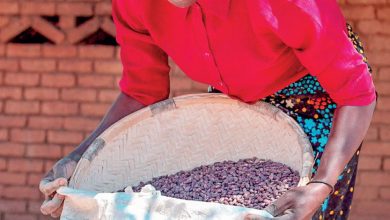Taming Mangochi’s fishing hub
What do you get from an area booming economically? Well, a pa r t f rom any positive development, economic boom comes with many atrocities, including crime and exploitation.
Makawa in Traditional Authority Mponda, Mangochi District is a fishing hub that has for a long time promoted school dropouts and sexual exploitation of women and girls.

This is an area that at its peak receives 100 fishing boats from Monday to Friday, drawing hundreds of customers and job seekers to off-load and carry the merchandise off shore.
Makawa can be likened to a golden city where daily cash glimmers in the waters surrounding communities, giving a shimmering hope for a better and brighter future.
But amid the glitz, Esnart James knows that all that glitters is not gold when she almost lost her then 16-year-old daughter to the area’s buzzling activities that include prostitution, sex for fish, piece work of offloading and transporting fish as well as early marriages to fish mongers.

James’ daughter was just in Standard Seven when Makawa almost swallowed her up to its trading activities, thanks to the intervention of HeRforShe Change Agents, police and traditional leaders whose tight grip of the area rescued the 16-year-old and is bringing positive outcomes for all.
The agents have partnered with UN Women to curb gender-based violence (GBV) that was rampart at the dock.
HeForShe chairperson Boston Jere said in an interview that the agents were trained in GBV by UN Women when HIV and Aids cases were on the increase alongside child and women abuse.
He said many youngsters abandoned school to work at the dock while some fishermen enticed young girls into relationships or early marriages.
Jere further alluded to the fact that sex for fish was normalised— where fishers demanded sex from business women if they wanted preferential treatment in buying fish.
“School dropouts increased, especially among girls who did not resist monetary pay-outs from fishers as enticements.
“Daily cash was our greatest enemy and without the intervention, our area could have remained backward,” he said.
Jere attributed the changes to the cooperation of chiefs, police, mother groups, religious leaders who hold patrols, advocacy meetings and mobile HIV testing sessions to bring sanity to the fishing hub.
He also observed that before the interventions, most men did not know that beating of women was a crime because culturally, they are projected to be superior and having the last say.
Group village head Makawa praised the HeForShe project for minimising chiefs’ work in resolving conflicts of varying degrees as more people are now enlightened on GBV.
“We were mediating and sitting through conflicts day and night without rest. Sometimes we dosed off through hearing cases because of fatigue,” she said.
Makawa acknowledged police patrols in villages to check for those absconding school and bring every child back, especially girls.
“We have several of our own girls in colleges and universities. We will in future utilise them as role models because it will make us proud to engage our own rather than depend on outsiders,” she beamed.
Group village head Matowe also acknowledged the impact of change agents and implored UN Women to consider continuing the project because they lacked alternative sources to carry on in the event funding ended.
“Please also consider an incentive for the agents to support their families because they work hard and for long hours trying to reach many people within their localities,” he said.
The change agents patrol villages to ensure children attend class and that they are not found at or near Makawa dock, except during weekends and holidays.
They also police against children being involved in vending such as mandasi or the recruitment of children below 18 years old.
Fisherman Frank Yasini admitted about the influx of under aged children on fishing boats upon arrival at Makawa.
He said some fishers favour some people for various reasons and said sometimes it is workers, not owners of the boats, who misbehave and spoil their businesses.
Mangochi Di st r ict Counci l and Ministry of Gender principal gender development officer Mariana Kanjirawaya said their policy of helping and rescuing children goes beyond the fishing arena.
UN Women deputy country di rec tor Fatima Mohammed applauded the working relation of native administration, civil servant and government in developing women with men as allies.
She deplored absence of economic power relations to transactions (sex for fish) as demeaning to women and retrogressive to development.
“The absence of equal economic power relations subjects women to abuse because men and woman are not on equal footing culturally and economically
“With Malawi having a feminised face of poverty, this is not tolerable. The journey to change is still long, but the change has demonstrated that anything is possible,” she said.
Mohammed said part of their next four-year strategic plan is to continue pushing forward to achieve women empowerment and gender equality even as the global and regional power houses are pushing backwards.
Malawi ranks 145 out of 188 countries on the gender inequality index
GBV Malawi factsheets from endgbv.africa estimates that 34 percent of women in Malawi have experienced physical or sexual violence and that one in five girls are sexually abused before they turn 18.
Sustainable Development Goal 5 aims to achieve gender equality ns empower all women and girls by eliminating all forms of discrimination and violence, and ensure equal access to resources and opportunities.
This includes addressing issues such as GBV, access to education, healthcare, economic opportunities and political participation.





